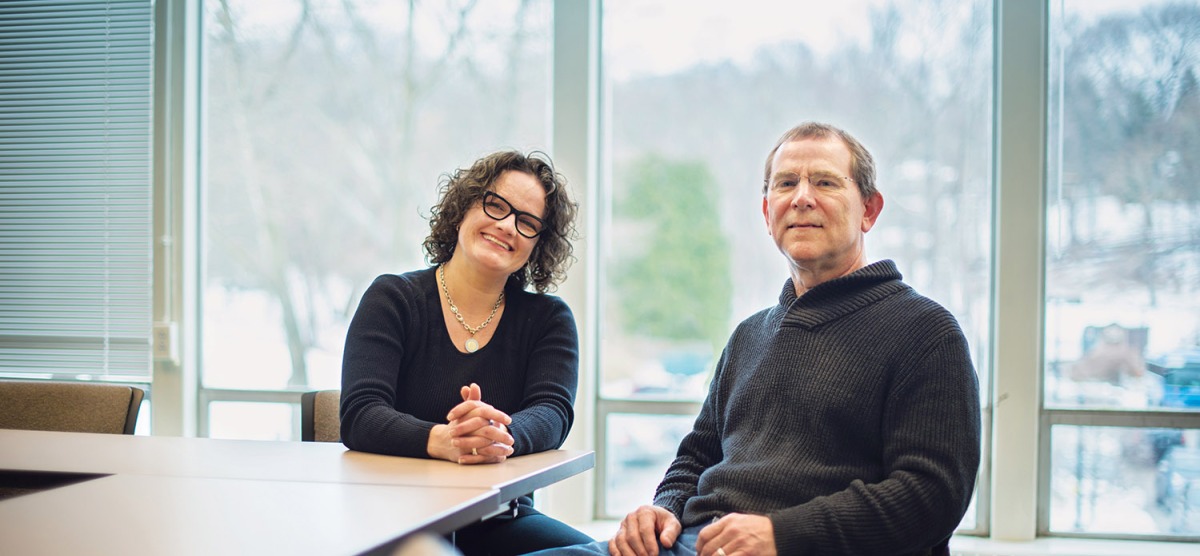
Making a Change to Make a Difference
Prospective grad students introduced to social work curriculum and more.
“I’m excited to be following my passion,” says Jim Alderfer M.S.S. ’17. Before earning a social work degree, Alderfer worked for 32 years as a computer programmer. It was a successful career but not his true calling.
“Social work was my first love,” says Alderfer, “but I convinced myself that a career in computer systems would be a more practical. Then several years ago, I decided to retire and return to that first love.”
“I’ve always valued service to others, and I’ve watched family members struggle with bipolar disorder,” he adds. “So I wanted a second career helping those with mental illness.” Taking a step to follow his dream, Alderfer took part in the Graduate School of Social Work and Social Research’s Career Changers program.
Designed for those considering a graduate degree in social work, the Career Changers program introduces potential students to the curriculum and the professional pathways in the field.
“Career Changers enables more people to come into our profession,” explains GSSWSR Dean Darlyne Bailey. “Social workers connect with individuals, families, organizations, and communities confronting multifaceted issues. Preparing those from a range of professional backgrounds and experiences, who share our core values, enriches our classrooms and the social work profession.”
Like Alderfer, Jacqueline Cahill M.S.S. ’18, and Kristi West, M.S.S. ’11, took part in the Career Changers program before attending the GSSWSR as students.
Cahill, in her early days of recovering from substance abuse, earned a B.A. in journalism and began a successful career in retail management. “But I kept asking myself,” she says, “’Is this what I’m meant to do? What is my true purpose?’ After years of introspection, I knew my purpose was to be of service to others, and I decided to go back to school for social work.” Now, having completed her first year of the M.S.S. program, Cahill’s goal is to work with people who struggle with substance use disorders.
For West, getting a social work degree was a natural move. Says West, “I’ve been practicing social work in some sense all my life.” For years, she worked with children with disabilities and volunteered with nonprofit and faith-based organizations in marginalized neighborhoods. But she knew other professional opportunities would open up if she had a graduate degree.
“I loved the Career Changers course. It removed the fear I had about returning to school after such a long time.”
Today, West is still using her past experiences in her job as a hospice social worker. “I’ve always loved connecting people with the resources they need. My ultimate goal is to open a private practice and provide free or low-fee
therapy for low-income families.”
Says Bailey, “Skills and
knowledge from a previous career or life experience are often transferable to social work. Our Career Changers are at a place in life where they want to learn how to best use their experience for the greater good. They want to give back, and we’re here to help them do just that.”
Published on: 05/14/2017